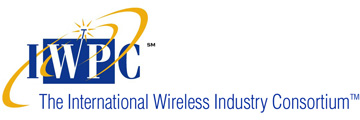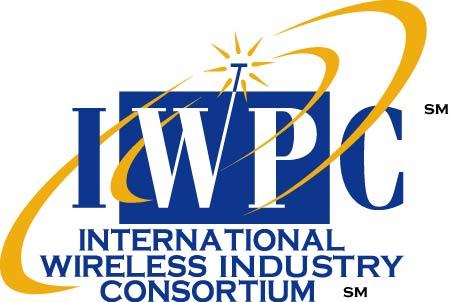When
April 28-29, 2016
Where
JW Marriott Dongdaemun Square Seoul
279, Cheonggyecheon-ro, Jongno-guSeoul 110-125, Korea
Introduction
In preparation for delivery of 5G services for the 2018 Winter Olympics, KT Telecom will host IWPC members in Seoul to explore innovation and advances in network infrastructure and user equipment. Specific use cases are emerging as candidates for early prioritization, including enhanced mobile broadband, massive machine type communications and ultra-reliable/low latency communications. As standards for 5G will be in the melting pot for some time, this workshop will provide an opportunity to assess initial technology drivers as well as maturity and timing of prospective 5G technology.
Workshop Goals
- Assess the impact 5G will have on mobile user equipment and future 5G smartphones
- Explore early “pre-standards” 5G plans, opportunities and implementation challenges
- Understand how 5G device RF Front Ends will need to be architected to support LTE
- Understand testing and performance challenges for future multimode, multiband devices
- Understand the maturity of components required to support 2018 trials towards 2020?
Agenda
|
DAY 1, April 28 Thursday 09:00
|
Welcome and Introductions
|
|
||||||||||
|
09:30 |
Keynote - 5G End-to End Perspective and Impact on User Equipment
|
5G Mobile Communications - Key Enabling Technologies and UE Development
Principal Engineer
|
||||||||||
| 10:30 | Networking Break |
Sponsored by:
|
||||||||||
|
11:10 |
Service Provider requirements and demands
|
UE Evolution from 4G+ to 5G
R&D Manager of Product R&D Division
Mobile Operator Perspective
Principal Engineer,
|
||||||||||
|
12:30 |
Networking Lunch |
|
||||||||||
| 13:30 |
Technology Enablers
|
UE Development Priorities - Understanding Operator Requirements, Performance Demands
Technical Manager
|
||||||||||
|
14:10
|
Technology Enablers (mmWave Opportunities and Challenges)
|
High Frequency, High Bandwidth, Signal Generation & Analysis
Technology Marketing Manager
Analysis of Recent mmWave Channel Sounding Measurements - Implications on UE Design, Performance and Testing
VP
|
||||||||||
| 15:30 | Networking Break | |||||||||||
| 16:10 |
Technology Enablers (continued)
|
Assessing Classical PA Implementation Impact on 5G Candidate Modulations
Director, System Engineering
|
||||||||||
| 16:50 |
End of Day Panel
|
Host, invited service providers, OEMs and technology vendors
|
||||||||||
| 17:30 |
Adjourn |
|||||||||||
| 19:00 |
Networking Dinner - Samcheonggak |
Bus
to Depart from Hotel at 18:15 |
||||||||||
|
DAY 2, April 29 Friday 09:00 |
Enhancing UE RF Performance -
Antennas
|
Beam Steering Technique for Improved Antenna System Performance in Mobile Applications
Chief Scientist
Multi-mode, Multi-band 5G Antenna Challenges
Research Manager
4.5/5G Antenna Technology
CEO
|
||||||||||
| 11:00 | Networking Break | |||||||||||
|
11:40
|
Technology Enablers (continued)
|
Silicon on Insulator and New Engineering Substrates for 5G
Business Development Manager
RF Front End – Open Questions - Technology Suppliers Perspective
Principal Engineer
|
||||||||||
| 12:30 |
Closing Discussion
|
Host, invited service providers, OEMs and technology Enablers
Invited:
|
||||||||||
|
13:30 |
Networking Lunch |
FAQs
- What is the deadline for presentation/handout materials?
- What can I do to prepare for speaking at an IWPC workshop?
- Who are the attendees?
- What are the costs/registrations fees?
- Hotel information?
- What are the travel options from the airport to the hotel?
- Are there any audiovisual requirements?
- Will business cards be collected?
- What is the dress code?
- How will handout materials be provided?
- What is the deadline for
presentation/handout materials?
Deadline for electronic version of presentation/handout materials: Friday, April 15th.
- What can I do to prepare for speaking an at IWPC workshop?
Click on the link below for a short video guide regarding preparing for and improving your IWPC presentation:
- Who are the attendees?
- We do not permit the Press.
- We do not permit Analysts.
- We do not permit Consultants.
- We do not permit 3rd party sales reps.
- We only permit "first hand knowledge experts" in business and technology issues, prepared to contribute to the discussion.
- What are the costs/registrations fees?
ALL Hosts, Speakers, Panel Members and Attendees will be asked to cover out-of-pocket workshop costs such as conference room costs, food (Social Reception plus First Day breakfast/lunch/dinner plus Second Day breakfast/lunch plus Breaks), audio/visual costs, etc.
These costs will be $1,166.00 (USD) per person. (For IWPC Members only.)
ALL Hosts, Speakers, Panel Members and Attendees will be asked to pay this fee in advance with either Visa, MasterCard, American Express, cash, personal check or business check. Make checks payable to IWPC.
- Hotel information?
JW Marriott Dongdaemun Square Seoul
279, Cheonggyecheon-ro, Jongno-gu
Seoul 110-125, Korea
Phone: +82 2 2276 3000
The IWPC room block rate 220.000 KRW. The cut-off date for reservations is Thursday, March 31th. After that date, rooms cannot be guaranteed at the IWPC rate. Hotel reservations can also be made on-line: Book Your Group Rate for IWPC.
- What are the travel options from the airport to the hotel?
Directions and transportation options will be posted as soon as possible.
- Are there any audiovisual requirements?
A Computer Projector will be available for the speakers.
In addition, we audiotape all presentations and the interactive discussions. Post workshop, presentations are made available to IWPC Members on the IWPC WEB site, along with “recordings” of all presentations and panel sessions.
- Will business cards be collected?
Business cards will be collected at the door from all attendees. We will make copies of these cards, which will be available to all who provided a business card.
- What is the dress code?
Business casual suggested. No ties, please!
- How will handout materials be provided?
For ALL IWPC members:
All IWPC members are invited to submit materials to be included in the online workshop folder in the IWPC Research Library. This should NOT BE SALES MATERIALS. Rather, we suggest it contain technical information about your technology as it relates to the workshop topics.
For all companies who will be making a presentation at the Workshop:
You are invited to submit an advance copy of your presentation, complete with graphics and illustrations.
These materials will be included on the IWPC website Research Library.
Please submit these materials either by email, as a Word for Windows file, Power Point files or PDF files.
- Go to www.iwpc.org
- Click on IWPC Activities Tab
- Under Workshops: Radio Access Networks Active Antenna Evolution
- Click on Submit Presentation Proposal. Complete the form and attach your presentation.
- Once we receive your presentation we will send an email confirmation.
AS BACKUP, PLEASE BRING AN ELECTRONIC COPY USB STICK WITH YOU!





